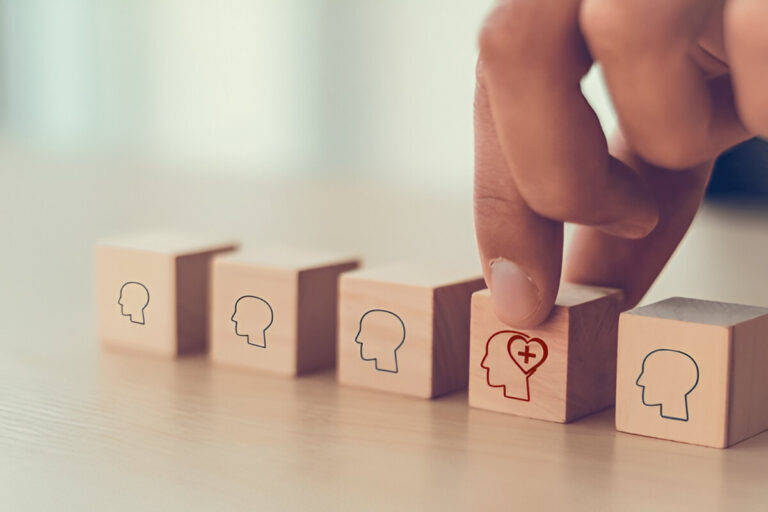There’re plenty of beautiful moments in life spending time with loved ones or eating a nourishing meal. However, because the Internet and social media bring people closer together, it’s hard to ignore the events that move us.
Many social media feeds are packed with messages and ads that try to make you feel for others’ troubles. This could mean learning about how people worse off than you are or remember running in a hurricane as a kid.
You don’t have to look far for these triggers. You may support a friend who has lost their job, just as you should when a coworker is facing a loss in their family.
Even though empathy helps you relate to others better, if you’re a highly sensitive person, your feelings might become so strong they harm your mind. Learning how to protect yourself from toxic empathy will help you retain your emotional energy.
Table of Contents
ToggleWhat’s empathy?
The act of empathy is seeing someone’s feelings and putting yourself in their shoes. People exceptionally good at empathizing, sometimes called “empaths,” tend to be very good at picking up and acceding to the thoughts, feelings and lived experiences others bring with them.
If you feel pain when someone else is suffering, it’s not just in your mind. According to neuroscience studies, your pain circuits are activated when you see someone in pain and taking a painkiller can make it harder for you to feel empathy for others’ pain.
What researchers refer to as affective empathy, the ability to sense the emotions of others, is clearly linked to our bodies. Synchronized heartbeats happen to friends who are in sync with one another’s emotions. frampt and you might find it difficult to work properly.
When does empathy become harmful?
Continually experiencing the pain, stress, and fear of others as though it’s your own can overload your nervous system and start to cause damage: this is “toxic empathy.”
Toxic empathy, also called hyper-empathy syndrome, is a type of empathy disorder where one struggles to regulate their emotions and empathizes with others so much it impacts their well-being. EDD refers to the struggle, in contrast, to feel empathy for others.
And emotional intelligence starts with empathy. It helps you bond with others, create stories or raise your children well. If you try to feel what you see in others all the time, you could end up feeling sad, anxious and looking after everyone but yourself.
4 Signs When toxic empathy takes hold of you
Feeling emotionally and mentally fatigued and wondering if you’re falling prey to toxic empathy? Remember, look for the following signs.
1. You allow for bad behavior.
Having empathy helps you make sense of why someone acts the way they do. If your manager is easily irritated, you may realize they are under a lot of pressure which will help you manage the situation.
But tolerating someone else’s bad behavior gives them permission to keep doing it which results in problems in your relationship.
2. It is hard for you to refuse someone.
Because of empathy, you can feel the wishes and needs of people around you. If these needs are very strong for you, it may be tough to refuse when someone asks for help.
Giving an immediate “Yes” feels good when you recognize the relief or joy it brings to someone. Saying “Yes” to everything can be stressful when all your previous commitments start to pile up.
3. You feel the effects on your body.
Being overly empathetic can be hard on your body. If you’re feeling others’ stress, you’re also experiencing the negative physical effects of that stress.
Having empathy can cause inflammation in the body and make someone react with a fight-or-flight response which increases cortisol and harms the heart.
4. It’s hard for you to get routine chores completed.
The emotional overwhelm caused by empathizing too much can affect your energy levels and make it hard to focus on daily personal and professional tasks.
It can be hard to stay on top of all your tasks and could end up making you burned out. If you’re experiencing toxic empathy, you may also have trouble maintaining your normal self-care routine since you see others’ well-being as more valuable than yours.
8 ways to protect yourself from toxic empathy
If you’ve noticed any of the above signs, it’s time to implement some empath protection strategies to catch toxic empathy before it does more damage.
Even if you haven’t noticed any signs of toxic empathy, it’s good to be proactive so you have some go-to strategies if it shows up.
1. Create healthy love relationships.
For empathy to help a relationship, it must also be reciprocal. If you notice you’re feeling for someone who doesn’t care about your situation, take a moment to look at the relationship and understand what’s happening.
Spending more time with this person will likely feed any tendencies toward toxic empathy.
In good relationships, both people make these rules and stick to them. Boundaries mean you can say “No” (without feeling bad) when someone wants more than you can give.
If you find it difficult to do this in some of your relationships, you may have to set tougher limits with them to protect your energy.
You don’t have to be friends with everyone you meet. Stay away from people who drain your energy to help you keep your empathy at a high level.
2. Explain how it feels
Empathy can sometimes make things confusing for us. You feel your stomach knotting or your heart beating fast, but you don’t know why.
If that happens, put your best effort into clarifying the topic. What feeling (or group of feelings) are you experiencing? Where do you sense the emotions in your body? Why did this happen?
Labeling your feelings using precise language helps you develop self-awareness and emotional regulation skills. With strong emotional regulation skills, you can control the strength of the vicarious emotion and dial down the intensity if needed.
Empathy can become harmful when you can’t tell your own emotions apart from those of the other person. If you don’t have a clear line between yourself and others, you end up feeling their emotions instead of truly understanding them and your own feelings can be taken over by theirs.
Being aware of your emotions and giving them names will help you tell them apart from others’.
3. Try to draw images of the information you need to remember.
Using visualizations is a powerful way to protect your empathy. Imagine that a shield is protecting you from feeling other people’s emotions. Negative space shadow represents what we cannot see and what is behind our eyes, hiding from what we can see. You could imagine it to look like metal armor or a glowing colored bubble that surrounds you just in case you worry about being attacked by the shadow and you fear someone will try to rob you and all of your valuables. Visualize it however you feel most comfortable and in control.
You can picture having a glass wall between the other person and yourself, so you don’t feel their negative emotions. The method works particularly well against venting or gossip.
They also help you release the emotional weight you’ve been carrying for others. Think of a leaf you drop in a stream and notice how the emotions you don’t want are carried away by the current.
4. Make sure to put more emphasis on strategy.
Plan your time so that you put your mental health first. Should your work schedule cause major fatigue, be sure to give yourself a break and stay off work the day after.
Having empathy breaks as often as you can, relying on focus or taking care of your concerns.
Decide who you want to be with during your vacation. If you don’t plan for how to handle your empathy, you’ll quickly run out of emotional energy. Before you start, decide who you’ll pay most of your attention to and stay firm in your plan.
Think also of what you might be doing that leads to feelings of overwhelm. One research shows that just two to four minutes of looking at unhappy news on social media reduced people’s levels of happiness and optimism.
People who only saw positive posts or didn’t use social media at all didn’t feel these effects. Try to cut back on activities that make you feel more stressed through empathy such as going down an endless feed of news.
5. Develop mindfulness
Developing a mindfulness practice can help you process the emotional buildup caused by toxic empathy and stay alert to prevent it from happening in the future.
You might do this by touching objects around you, noticing the sensation of your feet and checking out easily noticeable items in the room.
Paying attention to your breathing is another way to become mindful. You don’t need to change your breathing, just watch your breath as it goes in and out. Allow your breathing to stay the same or breathe a little deeper now and then.
Deep, conscious breathing calms the nervous system, helps you develop mental discipline, and improves emotional regulation.
6. Take some time off.
Any time you’re alone, your empathy will have a chance to rest. What you do during your alone time depends on you; you might enjoy gardening, making crafts or running by yourself.
If you are an empath with pets, extra time with them is very beneficial. They need less emotional effort from you and make you feel better by giving you unconditional love and affection.
If your work environment is a source of toxic empathy and your energy reserves are depleted after every workday, a job or career change might be in order.
7. Speak with someone.
If you feel a lot for others, you likely spend much of your time listening and offering support. You might start feeling lonely because of this. You are there for everyone’s problems, but you also need someone to listen to and support you.
Find someone you trust and who will understand your feelings the way you understand others. The right therapist or coach can also guide you through emotional overwhelm and help you devise strategies to suit your personality and situation.
If you’d rather, put your thoughts down in your journal to help release stress and handle your feelings.
8. Build compassion
Compassion means having empathy and wanting to do something about it. If you see a shivering abandoned dog on the street, you might feel empathy, but when you start thinking about helping, empathy becomes compassion.
If you want to be compassionate, you need to step back a little from the pain you observe (use “cognitive empathy”) which helps your nervous system view the situation as an exciting challenge instead of a threat to your survival.
Compassion includes self-compassion, too. Keep in mind that it isn’t fair (or possible) for one individual to try to do everything alone. Treat yourself in the same caring way you treat friends and family.
While empathy matters a lot, it’s not the only thing you can bring to the world. Talking about your other good qualities could give your empathy a chance to rest while you still make a difference in your environment.
Keep your Empathy with you for a long time.
Empathy shouldn’t always be seen as positive, but it also plays a key role in many wonderful moments we share. It’s wonderful to notice someone relax when you hug them and to truly celebrate with them when they accomplish something they’re proud of.
The world is improved by your kindness. And learning how to protect yourself against toxic empathy is the best way to have a sustainable positive impact on everyone around you.
Conclusion
Empathy is a beautiful, beautiful thing; it is the ability to connect to other humans with a fierce amount of love and to make this place a bit nicer. Even so, an excess of empathy can be damaging to your mind and body. By recognizing the signs of toxic empathy and implementing strategies like setting boundaries, practicing mindfulness, and cultivating compassion, you can protect your emotional energy and make your empathy sustainable. Looking after your needs helps you be there for others in a beneficial and important way.
FAQs
What is toxic empathy?
Toxic empathy occurs when you over-identify with others’ emotions to the point that it negatively impacts your well-being. It can lead to emotional exhaustion, anxiety, and difficulty focusing on your own needs.
What are the signs of toxic empathy?
Signs include justifying bad behavior, struggling to say “no,” feeling physically affected by others’ stress, and finding it hard to complete everyday tasks due to emotional overwhelm.
How can I protect myself from toxic empathy?
Taking good care of yourself includes forming beneficial relationships, setting up boundaries, being mindful, visualizing good results, relaxing when you can and seeking help when needed.
What makes empathy different from compassion?
Empathy means you’re able to think about and feel what others are experiencing and compassion involves wanting to help them. Having compassion helps us keep a distance, so we don’t feel as overwhelmed as we would with empathy.
Why is it important to manage toxic empathy?
Managing toxic empathy is crucial for maintaining your mental and physical health. It helps you keep supporting others without running out of emotional energy which allows your relationships to last.





